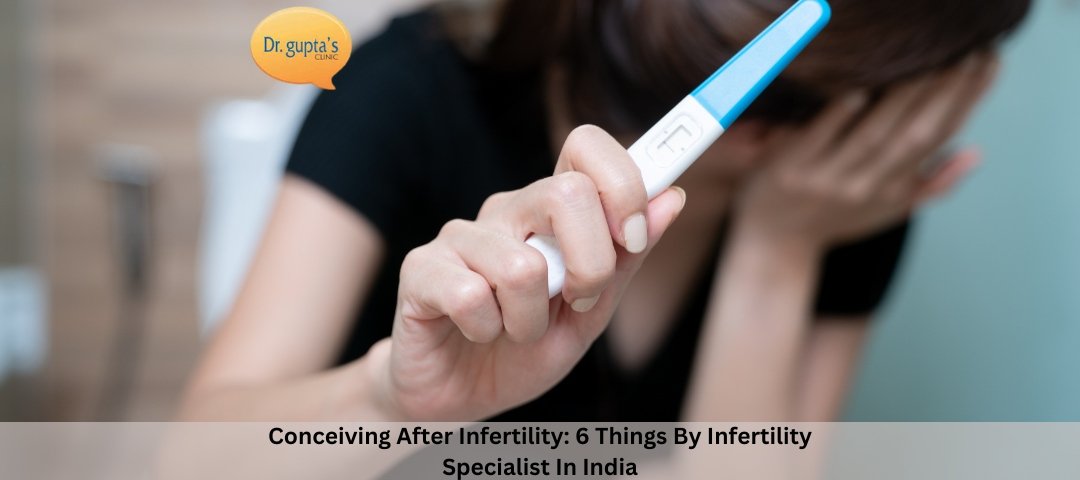If you have been coping with infertility for months and years, you may feel excited and more hopeful after conceiving. However, along with your excitement, you might sometimes get worried, anxious, and even panicked. An infertility specialist doctor discusses things you must know if you have finally conceived after being infertile for months or years.
Things No One Tells About Getting Pregnant After Being Infertile
According to an infertility specialist, here are the six things no one tells you about conceiving after being infertile.
- Feeling anxious: It is normal to feel happy and excited when you get pregnant after years of being infertile. Coping with the emotions of infertility is not an easy task. Postpartum depression is common and frequent if you have struggled to conceive. If you are trying to deal with emotional struggles after infertility, it’s okay to ask for help.
- Survivor’s guilt is common: Survivors’ guilt is common to experience after pregnancy. Having friends who are also coping with infertility can be a great comfort in sharing your concerns. However, pregnancy envy may also occur among your friends after conception.
- You may be at a higher risk: Pregnancy after being infertile is normal, but you may have some pregnancy risks as well, depending on your previous pregnancy history, your current weight, and your health. Talk to your infertility doctor and take advice on how to reduce those risks.
- Several insensitive thoughts may bother You: You might get worried about your unborn child. Always talk to your doctor, friends, and therapists about your worries.
- Denial can happen:. Even if you get a positive pregnancy test, you may find yourself testing again to get confirmation about the news. You might worry about bonding with your child or losing your pregnancy. These feelings are natural. You don’t need to take repeated pregnancy tests as they cause unnecessary anxiety.
- It is okay to complain: Years of struggling with infertility will increase your awareness and happiness after conception. However, you may feel uncomfortable and unwell, like morning sickness, backaches, or lack of sleep. It is okay to complain. You don’t need to love every moment of your pregnancy.
What Can Help If You Are Pregnant After Being Infertile? Explains Infertility Specialist
After years of infertility treatment, infertility’s emotional effects may not be a joyful experience. However, there are ways to cope with anxiety, despair, and frustration after years of repeated failure to conceive, explains an infertility specialist.
- Get support throughout your pregnancy period.
- Surround yourself with friends, family, and loved ones who can help emotionally.
- Educate yourself about pregnancy symptoms and sensations. Knowing about pregnancy symptoms and birth practices can help you make better choices related to your pregnancy.
- Prepare yourself for labor and birth. You can consult your doctor and then if he suggests doing these activities.
Conclusion
Coping with infertility can be emotionally challenging, and getting pregnant after being infertile can bring its own set of emotions. An infertility specialist in Kolkata discusses six things no one tells you about conceiving after infertility, including anxiety, survivor’s guilt, pregnancy risks, insensitive thoughts, denial, and the importance of seeking support and education during pregnancy.
For more information, please visit the website.
Website: https://www.drguptas.com/
You can also contact us through mail on: drguptasclinic@gmail.com
Or can also call us on: +91 9831834215
Related Blogs
How To Stop Masturbation In Men: Effective Ways To Overcome Masturbation Addiction
Are you in the habit of masturbating a lot? If yes, then you are on the right page! Masturbation is a natural and healthy aspect of human sexuality, contributing to sexual pleasure and overall sexual well-being. However, when it becomes an uncontrollable masturbation...
10 Effective Home Remedies For Vaginal Discharge
Many women have white discharge, also known as leucorrhoea, which is an issue that usually affects young girls of school age. This discharge problem occurs at a certain time period of the menstrual cycle. Girls and women shouldn't worry because the amount of white...
PCOD Diet: Foods To Eat And Avoid
Many immature or partly developed eggs are released by the ovaries as a result of polycystic ovarian disease (PCOD), which leads to cyst formation. Reduced symptom severity is a primary goal of PCOD diet and therapy. Indications of PCOD include painful or irregular...




